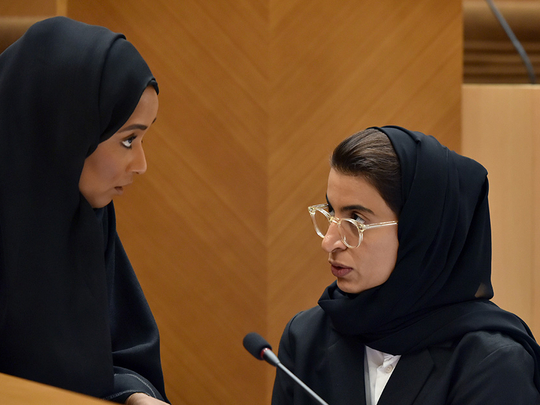
Abu Dhabi: A member of the Federal National Council (FNC) has called for chalking out a strategy to ensure children’s safety on roads.
“Too often in the UAE, we hear tragic stories of children’s lives being cut short in car accidents, which require immediate action to dramatically reduce the death toll,” Naama Al Sharhan, member from Ras Al Khaimah, told the House on Tuesday.
Al Sharhan said this while raising a question to Lt-General Shaikh Saif Bin Zayed Al Nahyan, Deputy Prime Minister and Minister of Interior. She asked why the ministry could not develop a system to boost children’s safety and reduce road crash deaths.
Al Sharhan said children’s safety has become a major concern with their death rate in road accidents across the UAE being very high compared to the global average.
“In the light of the fact that car accidents are a leading cause of death among children across the UAE, the Interior Ministry should develop a system to boost children’s safety and reduce road crash deaths,” Al Sharhan told Gulf News.
She suggested that the number of road crash deaths could drop significantly if vehicles incorporated certain enhanced vehicle safety changes in the design.
Al Sharhan added the use of seat belts was said to reduce the risk of death by up to 65 per cent (68 per cent if a car is fitted with an air bag). “Children, however, are poorly served.”
In her question, she said many drivers failed to strap their children with safety seats, endangering their lives in the event of a sudden stop or a car crash.”
In a letter, Shaikh Saif told the House that the UAE laws have been changed, banning children under 10 from sitting in the front seat of vehicles, and making strapping children under four years with safety seats mandatory, with offenders facing a Dh400 fine and four black points.
The correct use of car seats can reduce the likelihood of deaths by 70 per cent in infants, and by 54 to 80 per cent among young children, according to the World Health Organisation.
Al Sharhan also suggested more efforts be made to improve safety of pedestrians by the use of footbridges and crossings, and public education, particularly of children, to encourage responsible behaviour.
Al Sharhan added young drivers are hardest hit, with male drivers aged 17 or around accounting for a big chunk of driver fatalities.
Al Sharhan said there has been some reduction in the number of fatal accidents involving young people over the years, but the focus is mostly placed on young drivers with calls for more driver training and education.
This is not enough, Al Sharhan said. “More efforts should be made to reduce the death and injury toll. A crash leading to a young person’s death can be related to factors including driving an older vehicle (which has fewer crash-avoidance and crash-protection features), driving at night (which is more risky for everyone), driving when parents are unaware of how they behave on the road now they have their own car and are licensed to drive independently,” Al Sharhan said.












